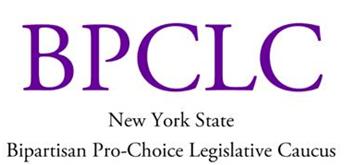Contraception
This bill requires each college and university of the state university of New York and the city university of New York to provide emergency contraception upon request; provides for the commissioner to establish a statewide emergency contraception college education and awareness program and to distribute informational materials and posters relating to the safety and efficacy of emergency contraception.
Sexual Health Care for Minors (S937 Krueger/A822 Paulin)
This bill ensures that minors under the age of eighteen will have access to a full range of sexual health care services, including vaccinations and other preventive care, diagnosis, and treatment without parental knowledge or consent, provided that the minor has the capacity to consent, and provides consent. This bill also updates state law to align with contemporary standards of medical practice by authorizing health care practitioners licensed under title eight of the Education Law, and acting within their scope of practice, to diagnose, treat, prescribe, and provide preventive care of sexually transmissible diseases, including administering immunizations.
Enacted Legislation
The “Boss Bill” (S660 Metzger/A584 Jaffee)
Signed into law on November 8, 2019
Prohibits employers from discriminating against employees or employees’ dependents based on their reproductive health decision making, including but not limited to, the decision to use or access a particular drug, device or medical service without the employee's prior informed, affirmative written consent; prohibits employers from taking retaliatory action and requiring employees to sign a waiver or other document that would deny their rights to make their own reproductive health decisions; provides penalties.
Comprehensive Contraception Coverage Act (S659A Salazar/A585A Cahill)
Signed into law on April 12, 2019
Requires every applicable group or blanket policy to provide coverage for all FDA-approved contraceptive drugs, devices, and other products, including all FDA-approved over-the-counter contraceptive drugs, devices, and products as prescribed or as otherwise authorized under state or federal law; requires applicable group or blanket policies to cover emergency contraception, voluntary sterilization procedures, patient education and counseling on contraception, and follow-up services related to the drugs, devices, products, and procedures covered; provides for the coverage of dispensation of a 12 month supply of a contraceptive at one time; prohibits applicable group or blanket policies from imposing a deductible, coinsurance, copayment, or any other cost-sharing requirement on coverage provided.
This Guttmacher Institute research article discusses the importance of providing a comprehensive selection of contraceptive medthods in order to promote positive outcomes and to prevent reproductive coercion.
Contraceptive method use in the United States: trends and characteristics between 2008, 2012 and 2014
This Guttmacher Institute study examined contraceptive use in the United States from 2008-2014. This study was conducted in order to understand: the possible correlation to recent declines in unintended pregnancies, unintended pregnancy risk, and the mix of methods being used.
2017 Year In Review: Gaining Ground Proactive Reproductive Health and Rights Legislation in the States (NIRH): The National Institute for Reproductive Health’s (NIRH) mission is to help build a society in which everyone has the freedom and ability to control their reproductive and sexual lives. In the current political climate, proactive policy change that advances that mission might seem out of reach—but in reality, state advocates, legislators, and governors are moving forward every day with innovative policies that will improve the daily lives of the residents of their states. The goal of this report is to encourage greater advocacy for such affirmative policies and to help demonstrate that real change is possible, ongoing, and being driven by advocates and lawmakers at the state and local levels.
-
1500
"First spermicides introduced which used condoms made from linen cloth sheaths and soaked in a chemical solution and dried before using."
-
1838
"Condoms and diaphragms made from vulcanized rubber."
-
1873
"The Comstock Act passed in the United States prohibiting advertisements, information, and distribution of birth control and allowing the postal service to confiscate birth control sold through the mail."
-
1914
"Planned Parenthood’s founder Margaret Sanger coins the term 'birth control' and uses the phrase in an issue of The Woman Rebel. Sanger is indicted for violations of the Comstock Law, which outlawed contraception and declared information about it 'obscene'."
-
1916
"Margaret Sanger opens the first birth control clinic."
-
1960
"30 states still have Comstock laws which prohibit or restrict the sale and advertisement of birth control.
The Food and Drug Administration (FDA) approves the birth control pill as an oral contraceptive." -
1965
"Griswold v. Connecticut The U.S. Supreme Court rules that married couples have the right to contraception in a case triggered by Planned Parenthood’s first clinic in New Haven, Connecticut."
-
1972
"Eisenstadt v. Baird Supreme Court decision establishes the right of unmarried people to use contraceptives."
-
1998
"Planned Parenthood wins a major legislative victory requiring prescription contraceptive drugs and devices be included in insurance coverage for all employees of the federal government."
-
2006
"Emergency contraception is approved for sale over-the counter to men and women 18+."
-
2008
"The Bush administration proposes a rule that would have limited the rights of patients to receive complete and accurate reproductive health information. Planned Parenthood files suit over the disastrous 'midnight regulation'."
-
2013
"The FDA lifts the age restrictions for over-the- counter sale of Plan B One-Step emergency contraception."
-
2017
Today, under ACA/Obamacare, FDA-approved contraceptives are covered by individual health insurance plans, and there is no co-pay. Accessible contraception enables family planning, helps to reduce the rates of teen pregnancy and maternal mortality, and helps to treat certain medical conditions. The Trump administration has rolled out new rules exempting employers from offering contraception coverage for their employees for moral or religious reasons. The BPCLC is a strong supporter of legislation that mandates comprehensive contraception coverage.
- History of Abortion, the National Abortion Federation: https://prochoice.org/education-and-advocacy/about-abortion/history-of-abortion/
- A Brief History of Birth Control in the U.S., Our Bodies Ourselves: http://www.ourbodiesourselves.org/health-info/a-brief-history-of-birth-control/
- 100 Years of Birth Control, Planned Parenthood Action Fund: https://www.plannedparenthoodaction.org/uploads/filer_public/ed/78/ed78a43a-e466-4194-870c-251794d9d22b/7-16-14-birth-control-timeline-final.pdf
